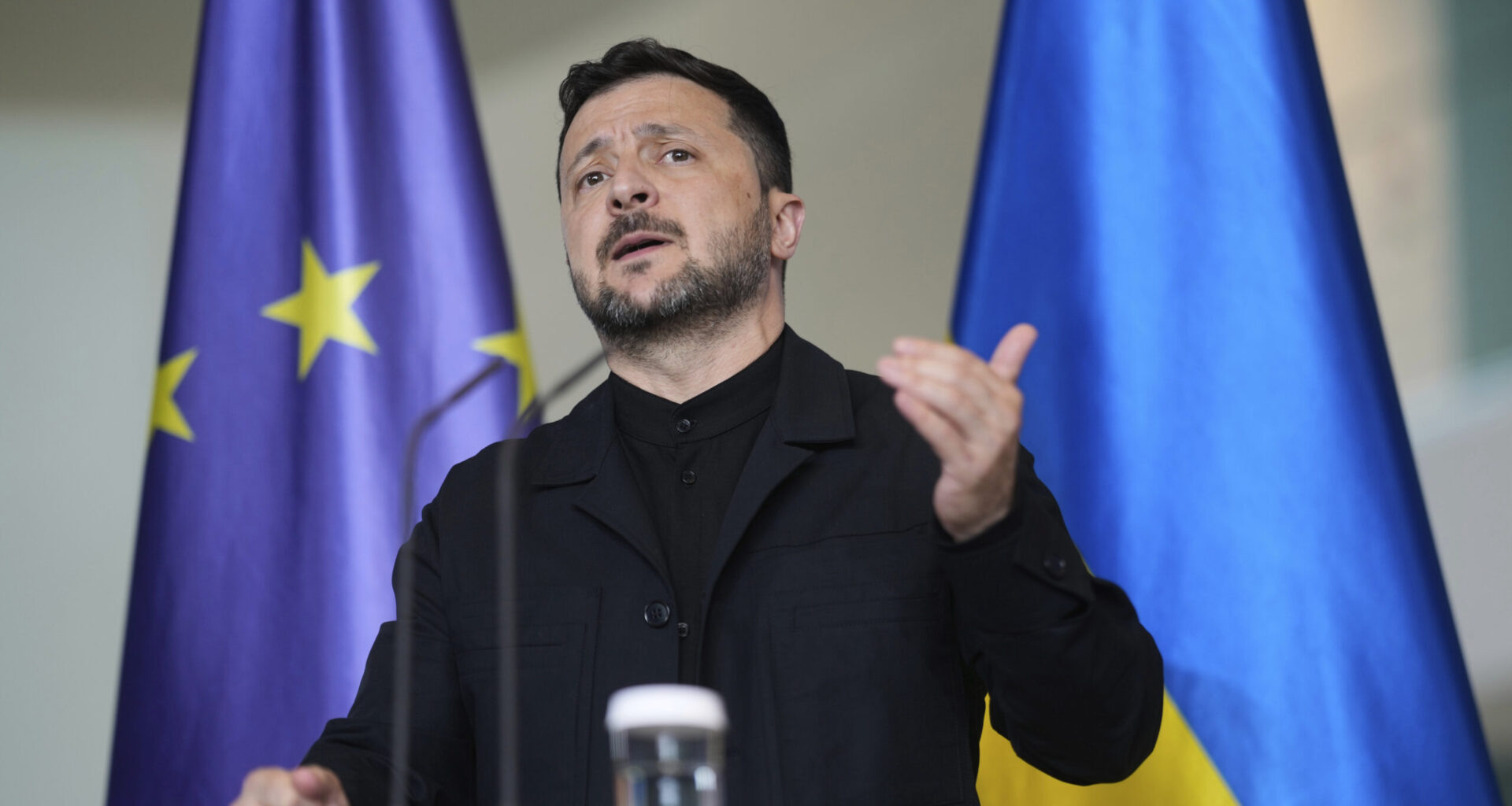President Volodymyr Zelensky, in Monday’s meeting with President Trump at the White House, faces a choice. Ukraine can accept being a truncated nation that maintains its independence or, following Belgium’s example in World War I, be “crushed gloriously” and erased from the map by a more powerful foe.
Saturday on X, Mr. Zelensky doesn’t insist on recovering lost territory, which has been his chief war aim. Instead, he echoes Mr. Trump’s priority to “stop the killing,” while adding that Ukraine needs “a real peace that will be lasting, not just another pause between Russian invasions.”
Mr. Zelensky writes that he spoke to Mr. Trump after his summit with President Vladimir Putin to plan trilateral talks. He emphasizes Ukraine’s “need to reliably and long-term guarantee security with the participation of both Europe and the United States.” He sounds ready to face stark realities.
Numbers, like President John Adams said of facts, “are stubborn things.” Ukraine, now conscripting men as old as 60, can’t win this war of attrition. A Gallup survey on August 7 found just 24 percent of Ukrainians favor “fighting until the war is won,” down from a high of 73 percent as “support for the war effort collapses.”
In June, a poll by the Kyiv International Institute of Sociology found 43 percent of Ukrainians would accept a peace deal that tolerated Russian troops on their soil short of a formal acceptance of annexation. Forty-eight percent “categorically” oppose even that “de facto” recognition.
Mr. Zelensky reflects the shift toward viewing survival as victory, a tactic America employed in the War of 1812. Although the United Kingdom routed the American Army and burned the White House, the United States Navy prevented it from subjugating its former colonies, enabling President Madison to spin the results as winning the Second War of Independence.
It’s hard to see, though, how Ukraine, absent another country joining hostilities, could dislodge Russia, a replay of 2014 when it lost Crimea. Despite America, Russia, and the United Kingdom signing the Budapest Memorandum in 1994, promising to safeguard Ukraine’s borders, President Obama and Prime Minister David Cameron failed to intervene militarily.
In the years that followed, America helped Ukraine beef up its defenses. When Russia launched its current offensive, President Biden foresaw a repeat of the Crimea collapse and offered to fly Mr. Zelensky to safety, abandoning the country to Mr. Putin.
“I need ammunition,” Mr. Zelensky replied, “not a ride.” The under-secretary of the Belgian Foreign Office, Baron de Bassompierre, showed similar defiance in 1914 when Germany offered an ultimatum: Let its troops travel through the country or face annihilation.
“If we are to be crushed,” Bassompierre responded, “let us be crushed gloriously.” Belgium mounted a valiant fight before its defeat. Some historians contend that the resulting delay in the Germany army’s race toward Paris in that summer of 1914 helped spare the French capital from capture.
Had Germany beaten the Allies, it planned to carve Belgium into vassal states, as it laid out in the Septemberprogramm. Belgians might have fared better had it risked abandoning neutrality.
Bassompierre’s government, however, doubted that Germany would keep its word just as Ukraine doubts Russia will today. When Mr. Zelensky seeks security guarantees and membership in the North Atlantic Treaty, it’s to ensure that allies will come to his country’s rescue as the British did Belgium’s under the 1839 Treaty of London.
A look at global borders shows the scars of other nations who’ve had to accept foreign occupation of their territory when they lacked the might to hold them. Both Pakistan and India claim Kashmir. Turkey has been on Northern Cyprus for 50 years. Russia has held Japan’s Kuril Islands since snatching them in World War II.
On X, Mr. Zelensky said that “no issue … including territorial ones, should be resolved without Ukraine.” His countrymen have bought him that seat at the table. It isn’t as sweet or glorious as victory, but it’s not as bitter as being crushed.
